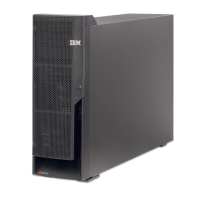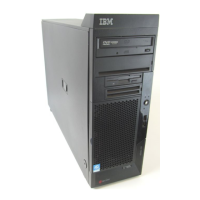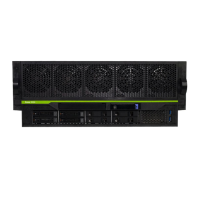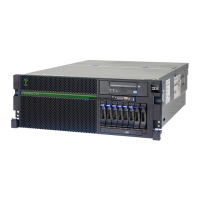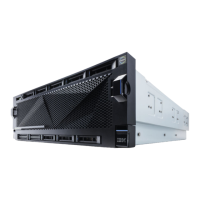iSeries architecture: Fundamental strength of the IBM ^ i5 and iSeries 13
Draft Document for Review October 18, 2004 5486AdvTech.fm
The microcode layer is known as the
System Licensed Internal Code. Many of
the frequently-executed routines run in
SLIC. Supervisory resource
management functions in SLIC include
validity and authorization checks. On a
customary system, these routines reside
in the operating system. Because SLIC
is closer to the silicon, routines
performed there are faster than routines
placed “higher” in the machine.
The brilliance of this design was
dramatically illustrated when the AS/400
system changed its processor technology from CISC processors to 64-bit RISC
processors in 1995. With any other system, the move from CISC to RISC would
involve recompiling (and possibly some rewriting) programs. Even then, with
other systems, the programs would run in 32-bit mode on the newer 64-bit
hardware.
This is not so with the iSeries server, because of TIMI. Customers were able to
save programs off their CISC AS/400 systems and restore them on their RISC
AS/400e™ models. The programs run as 64-bit programs. As soon as they made
this transition, customers had
64-bit application programs that ran on a 64-bit
operating system
, containing a 64-bit relational database that fully exploited the
64-bit RISC hardware.
TIMI and SLIC take technology in stride. New architectural features are exploited
to fully accommodate post-RISC technologies, which may incorporate 96-bit or
128-bit processors or shifts to different processor technologies. TIMI helps
condition the iSeries to bring new technology to market.
POWER Hypervisor
IBM Eserver i5 servers work with a different structure when compared to the
previous technologies used with the iSeries servers. Above the POWER5
technology-based hardware is a new code layer called the
POWER™
Hypervisor
.
This code is part of the firmware shipped with the Eserver i5 hardware. The
POWER Hypervisor resides in flash memory on the Service Processor. This
firmware performs the initialization and configuration of the Eserver i5
hardware, as well as the virtualization support required to run up to 254 partitions
concurrently on the Eserver i5 servers.
Programs
TIMI
SLIC
64-bit RISC Hardware
